
Filter News
Area of Research
- Advanced Manufacturing (1)
- Biology and Environment (41)
- Clean Energy (23)
- Computer Science (2)
- Energy Frontier Research Centers (1)
- Fusion and Fission (7)
- Fusion Energy (1)
- Isotope Development and Production (1)
- Isotopes (14)
- Materials (47)
- Materials for Computing (7)
- National Security (15)
- Neutron Science (13)
- Nuclear Science and Technology (6)
- Quantum information Science (1)
- Supercomputing (23)
News Type
News Topics
- (-) Advanced Reactors (12)
- (-) Biology (43)
- (-) Cybersecurity (23)
- (-) Hydropower (2)
- (-) Isotopes (27)
- (-) Microscopy (25)
- (-) Nanotechnology (32)
- (-) Polymers (17)
- (-) Quantum Science (28)
- (-) Space Exploration (3)
- 3-D Printing/Advanced Manufacturing (56)
- Artificial Intelligence (33)
- Big Data (14)
- Bioenergy (41)
- Biomedical (25)
- Biotechnology (11)
- Buildings (22)
- Chemical Sciences (38)
- Clean Water (7)
- Climate Change (37)
- Composites (11)
- Computer Science (70)
- Coronavirus (23)
- Critical Materials (12)
- Decarbonization (34)
- Education (3)
- Element Discovery (1)
- Energy Storage (55)
- Environment (73)
- Exascale Computing (12)
- Fossil Energy (1)
- Frontier (17)
- Fusion (21)
- Grid (22)
- High-Performance Computing (35)
- ITER (3)
- Machine Learning (18)
- Materials (66)
- Materials Science (62)
- Mathematics (4)
- Mercury (6)
- Microelectronics (1)
- Molten Salt (2)
- National Security (33)
- Net Zero (5)
- Neutron Science (57)
- Nuclear Energy (40)
- Partnerships (27)
- Physics (40)
- Quantum Computing (10)
- Renewable Energy (1)
- Security (17)
- Simulation (12)
- Statistics (2)
- Summit (22)
- Sustainable Energy (44)
- Transformational Challenge Reactor (4)
- Transportation (37)
Media Contacts
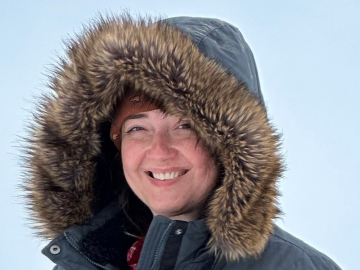
Colleen Iversen, ecosystem ecologist, group leader and distinguished staff scientist, has been named director of the Next-Generation Ecosystem Experiments Arctic, or NGEE Arctic, a multi-institutional project studying permafrost thaw and other climate-related processes in Alaska.
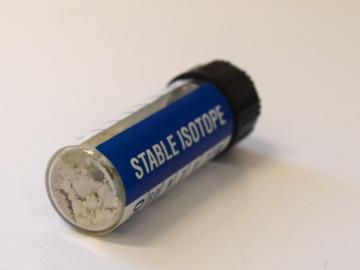
ORNL’s electromagnetic isotope separator, or EMIS, made history in 2018 when it produced 500 milligrams of the rare isotope ruthenium-96, unavailable anywhere else in the world.
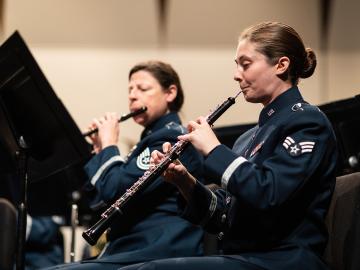
Growing up in suburban Upper East Tennessee, Layla Marshall didn’t see a lot of STEM opportunities for children.
“I like encouraging young people to get involved in the kinds of things I’ve been doing in my career,” said Marshall. “I like seeing the students achieve their goals. It’s fun to watch them get excited about learning new things and teaching the robot to do things that they didn’t know it could do until they tried it.”
Marshall herself has a passion for learning new things.
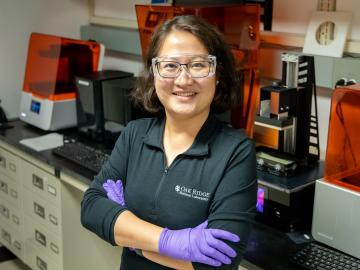
Growing up in China, Yue Yuan stood beneath the world’s largest hydroelectric dam, built to harness the world’s third-longest river. Her father brought her to Three Gorges Dam every year as it was being constructed across the Yangtze River so she could witness its progress.
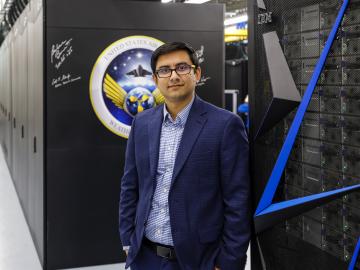
Climate change often comes down to how it affects water, whether it’s for drinking, electricity generation, or how flooding affects people and infrastructure. To better understand these impacts, ORNL water resources engineer Sudershan Gangrade is integrating knowledge ranging from large-scale climate projections to local meteorology and hydrology and using high-performance computing to create a holistic view of the future.
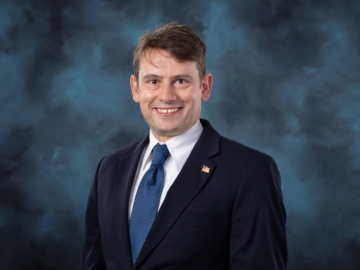
Andrew Lupini, a scientist and inventor at ORNL, has been elected Fellow of the Microscopy Society of America.
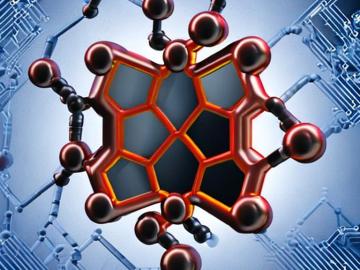
Researchers at ORNL have developed a machine-learning inspired software package that provides end-to-end image analysis of electron and scanning probe microscopy images.
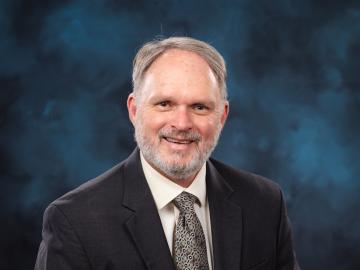
Mickey Wade has been named associate laboratory director for the Fusion and Fission Energy and Science Directorate at the Department of Energy’s Oak Ridge National Laboratory, effective April 1.
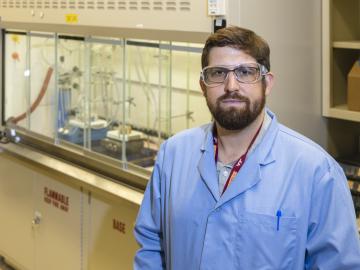
Chemist Jeff Foster is looking for ways to control sequencing in polymers that could result in designer molecules to benefit a variety of industries, including medicine and energy.
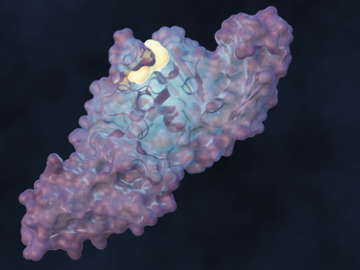
A team of scientists led by the Department of Energy’s Oak Ridge National Laboratory designed a molecule that disrupts the infection mechanism of the SARS-CoV-2 coronavirus and could be used to develop new treatments for COVID-19 and other viral diseases.


